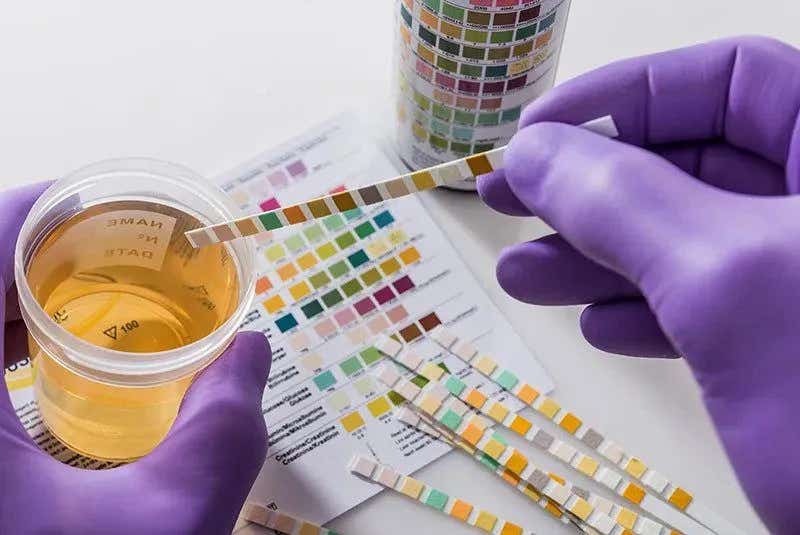Researchers develop urine test for early detection of lung cancer
Cambridge scientists create the first urine test to catch lung cancer early by detecting zombie cells before tumors grow.

Scientists at Cambridge have created a simple urine test to detect early signs of lung cancer.
A groundbreaking new urine test could soon help spot the early warning signs of lung cancer long before symptoms appear. Scientists at the University of Cambridge, led by Professor Ljiljana Fruk and Dr. Daniel Muñoz-Espín, have developed the first test of its kind.
By detecting so-called "zombie" cells—damaged cells that refuse to die and instead create a dangerous environment for tumors—this simple, affordable test could give patients a much better chance of surviving one of the deadliest cancers.
Thanks to a grant of £88,000 from Cancer Research UK, the research teams in the Department of Chemical Engineering and Biotechnology and the Early Cancer Institute are moving closer to bringing this early detection method to clinics. If trials in humans go as planned, it could change the future of lung cancer diagnosis forever.
A New Approach to Catching Cancer Early
Early detection often means the difference between life and death when it comes to lung cancer. Most patients are diagnosed after the disease has already spread, making treatment much harder. Current tools like CT scans are improving early diagnosis rates, but they are expensive and not always accessible to everyone.
This new test works in a completely different way. It starts with a tiny injectable probe—a molecular sensor—designed to recognize a specific protein released by senescent, or "zombie," cells. When the probe encounters the protein in lung tissue, it splits into two pieces. One part travels through the blood, reaches the kidneys, and is eventually flushed out in urine.
Once urine is collected, scientists add a silver solution, similar to chemicals once used in film photography. If the targeted proteins were present in the lungs, the urine changes color. "By monitoring the color of urine after the injection of the probe, we can say if cells are present in lungs that would indicate the early signs of pathological changes that might lead to cancer," Professor Fruk explained.
Related Stories
How Zombie Cells Help Cancer Grow
Even though zombie cells can no longer divide, they cause big problems. Instead of quietly dying, these cells stay alive and release chemical signals that change their surroundings. Over time, they remodel nearby tissue, making it easier for cancerous cells to grow and spread out of control.
“We know that before cancer emerges there are changes in the affected tissues," Fruk said. "One of the changes is the accumulation of damaged cells that are not damaged enough to be removed, but enough to release signals that reprogram the tissue and make it perfect for cancer development.”
By targeting these early biological shifts instead of waiting for tumors to grow large enough to spot through imaging, the new urine test offers a chance to catch cancer when it is still easy to treat. "Early detection of cancer requires cost-effective tools and strategies that enable detection to happen quickly and accurately," said Fruk.
Moving from Mice to People
So far, the Cambridge team has successfully tested the urine sensor in mice. The results are promising, showing that the test can detect early signs of disease before tumors have fully formed. The next big step will be testing the sensor in humans, a process researchers hope to start soon.
If human trials confirm the early findings, doctors may someday use this simple urine test as part of regular health checks, especially for people at high risk of lung cancer, such as smokers or those with a family history of the disease. Detecting cancer months or even years earlier could mean avoiding invasive surgeries or intense chemotherapy treatments. It could also cut healthcare costs, especially compared to the high price of repeated lung scans.
Around 36,600 lives are saved from lung cancer every year in the UK, according to Cancer Research UK. Tools like this new test could push that number even higher.
Hope Beyond Lung Cancer
While lung cancer is the first target, researchers are already looking ahead. The same sensor technology could be adapted to catch other cancers early, including breast cancer, melanoma, and pancreatic cancer. Since zombie cells show up early in many types of cancer, there is hope the urine test could be customized to find them wherever they appear.
"We have almost completed a functional urine test to detect ‘zombie' cells in lung cancer, which will spot cancer earlier and avoid the need for invasive procedures," said Fruk. "But this test does have potential for other cancers. Developing more efficient cancer treatments requires earlier detection and better therapies, but also work with other disciplines for a more holistic view of the disease, which is an essential part of my research."
The project is part of a broader mission by Cancer Research UK to boost survival rates for lung cancer and other deadly diseases. Over the last decade, the charity has invested more than £231 million into lung cancer research alone.
"From uncovering the causes of lung cancer to pioneering drugs to treat it, Cancer Research UK has helped power progress for people affected by lung cancer," said Dr. Iain Foulkes, Cancer Research UK's executive director of research and innovation. "This project being led by Professor Fruk is another example of our commitment to driving progress so that more people can live longer, better lives, free from the fear of cancer."
The Future of Cancer Detection
The idea of diagnosing cancer through a urine test may sound futuristic, but it is closer to reality than you might think. The Cambridge team’s work shows that by focusing on the earliest biological changes inside the body, rather than waiting for obvious signs of disease, science can give doctors—and patients—a powerful new advantage.
While there is still more research ahead, the future looks hopeful. With early detection tools like the zombie-cell urine test, fewer people may have to face late-stage lung cancer, and more lives may be saved.
Note: The article above provided above by The Brighter Side of News.
Like these kind of feel good stories? Get The Brighter Side of News' newsletter.
Rebecca Shavit
Science & Technology Journalist | Innovation Storyteller
Based in Los Angeles, Rebecca Shavit is a dedicated science and technology journalist who writes for The Brighter Side of News, an online publication committed to highlighting positive and transformative stories from around the world. With a passion for uncovering groundbreaking discoveries and innovations, she brings to light the scientific advancements shaping a better future. Her reporting spans a wide range of topics, from cutting-edge medical breakthroughs and artificial intelligence to green technology and space exploration. With a keen ability to translate complex concepts into engaging and accessible stories, she makes science and innovation relatable to a broad audience.



